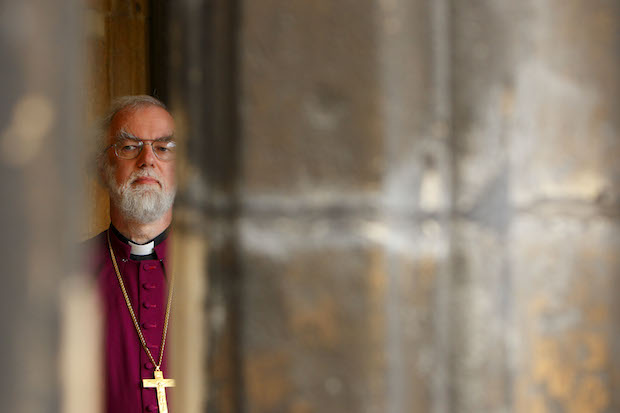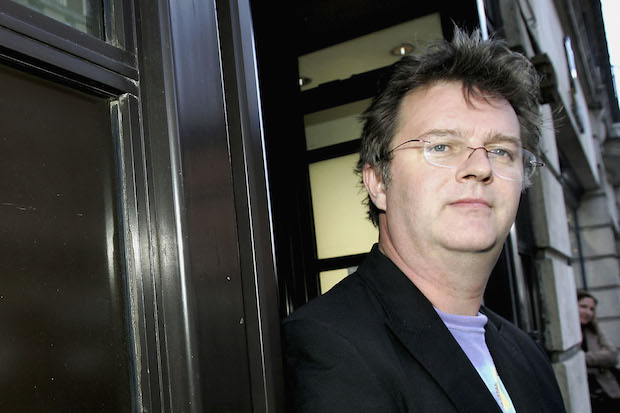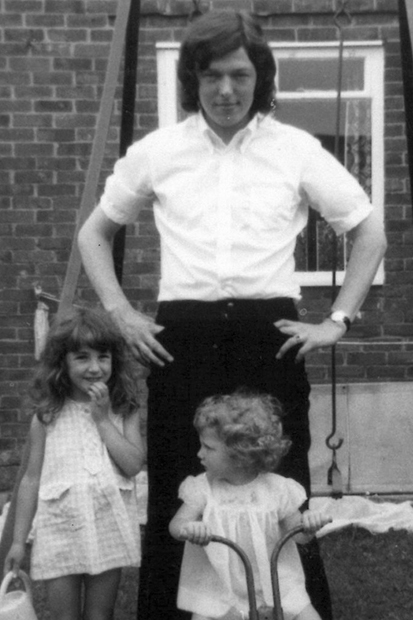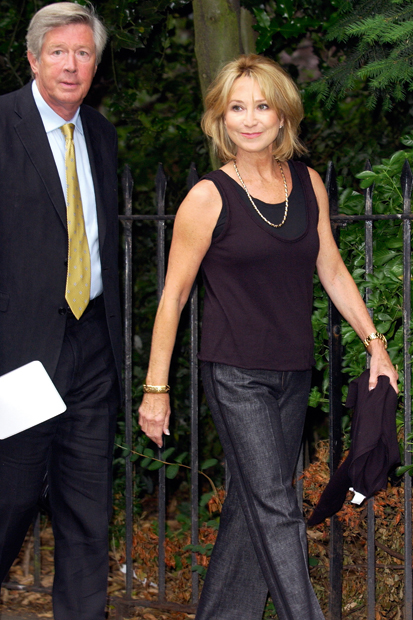It used to seem rather obvious that the world was full of evidence for God. These days, theologians no longer beat this drum — but some of them still give it soft little taps from time to time.
Such tapping is what Rowan Williams is drawn to, now that he’s free of the obligation to dance around homosexuals and Muslims, so to speak. In this book, adapted from his recent Gifford lectures (a famous lecture series devoted to ‘natural theology’), he ponders the philosophy of language, and suggests that there is a deep affinity between how humans make meaning and how religious language makes sense.
It’s a meticulously restrained and complex performance, as you’d expect — but worth straining to hear. Is he saying that there is some sort of proof of Christianity’s truth in the linguistic structure of reality? No; but he is saying that serious attention to language tells us that there are more things in heaven and earth than are dreamed of in the crude scientism of the atheists.
He argues that we must get away from the idea that language essentially describes reality, as best it can. If you say that the cat is on the mat (and the cat is on the mat), you are not mirroring reality through language; you are making some weird noises with your mouth (and maybe waking up the cat). Language is creative, poetic; metaphor’s its métier. And it’s practical; it’s what humans do. Language isn’t a tool for describing a non-linguistic, brutely material reality: it is more like the engine of reality.
And, Williams convincingly argues, language underlies scientists’ theories. The idea that language can be understood as a product of evolution gets things back to front: rather, it is language that allows us to see this process in nature:
We have no choice but to talk about [matter] as a linguistic or symbolic reality, whose processes we can only understand by analogy with our own conscious systems of recognition and collaboration.
This view of language as creative of meaning (which he sums up in the term ‘representation’) has a sort of ethical implication, he begins to argue. It shows us our dependence on those around us, and inherited patterns, for meaning is a shared, public thing, and a practical thing, made by bodies in time and space. (Wittgenstein is still at the heart of Williams’s thought.) This view ought to make us utterly resistant to neat tidy systems, and final explanations. And he suggests that the secularism of our day tends in this direction; it sees language as a means to technical mastery and individual autonomy.
He therefore argues that there is a sort of wisdom in language, when carefully attended to: it teaches us to affirm our dependence and finitude, and it leads us towards acceptance of linguistic difficulty (or ‘mystery’), and silence. For these things are aspects of how complex meaning is made, rather than just deficiencies. One learns to be patiently attentive to such strange, challenging forms of communication when one grasps that ‘there is no level of representation to which all others can be reduced’.
You could say that attention to language-as-representation promotes a sort of slow humanism, an intense tolerance for how human beings actually make meaning (at one point he discusses the fraught communication of a severely autistic child as illustrative of how all language is rooted in finite bodily life). Furthermore, although one’s meaning-making is limited (by one’s embodied nature), one needs to trust other forms of language that are somewhat alien to one — perhaps this entails positing a general meaningfulness in which all particular, limited meaning shares. Is there an argument for God here?
Well, the atheist is unlikely to have broken into a nervous sweat. And Williams cheerfully admits it. But maybe this is what ‘natural theology’ should do, he ventures: not try to find evidence of the Christian God in the world (an erroneous aim, as it undermines the concept of revelation), but give an account of the world that is congruent with the religious view.
So he is not really putting the case for Christianity; he is just raising a preliminary question: how does meaning-making work? In a sense he is saying to his fellow theologians: let us sharpen our grasp of this crucial territory before we attempt a new apologetics. This might sound like wise long-term thinking. But on the other hand, Williams was ploughing this furrow 30 years ago, and what’s resulted, besides lots of theologian-pleasing erudition? This form of theology has a limited ability to persuade or interest outsiders.
The philosophy of language is indeed a crucial resource for theology. But perhaps it is also a temptation: when theology puts all its eggs in this basket the result seems to be a certain insularity, a dulling of the impulse to construct an engaging, accessible apologetics.
Got something to add? Join the discussion and comment below.
Get 10 issues for just $10
Subscribe to The Spectator Australia today for the next 10 magazine issues, plus full online access, for just $10.
Available from the Spectator Bookshop, £17, Tel: 08430 600033. Theo Hobson is the author of Reinventing Liberal Christianity.
You might disagree with half of it, but you’ll enjoy reading all of it. Try your first month for free, then just $2 a week for the remainder of your first year.














Comments
Don't miss out
Join the conversation with other Spectator Australia readers. Subscribe to leave a comment.
SUBSCRIBEAlready a subscriber? Log in